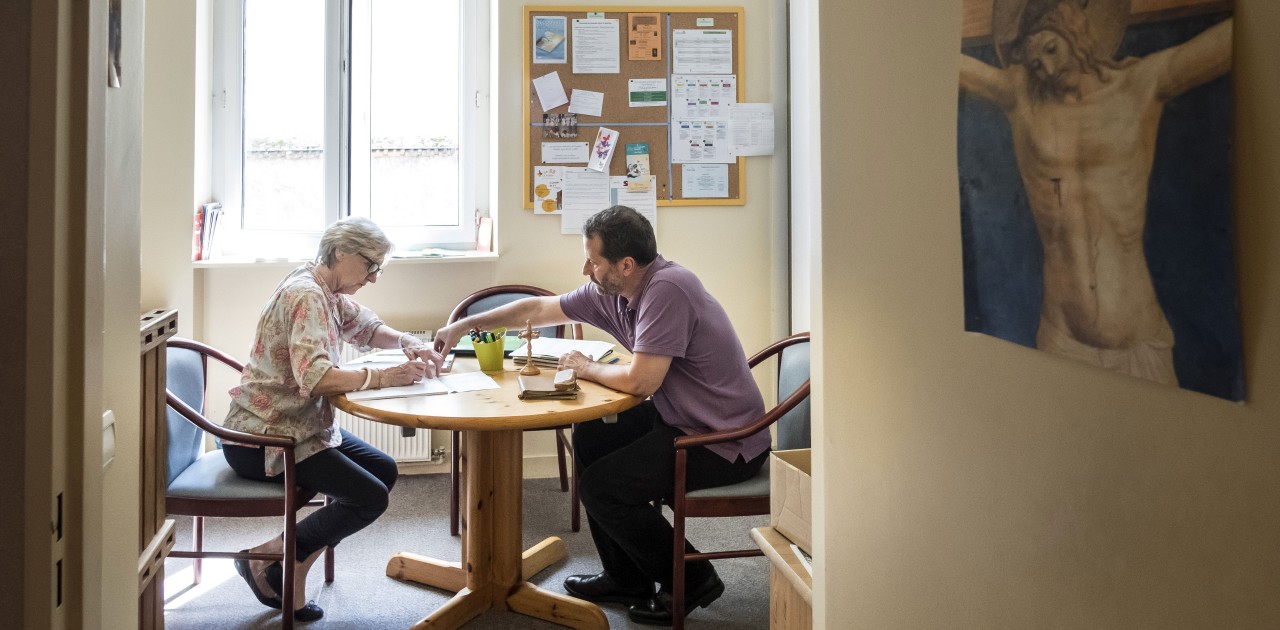The role of chaplain can be a heavy burden. Sometimes he is the psychological and religious director of several institutions, hospitals, prisons or schools. This role must be in line with their identity because it requires great emotional control and good organization.
The first step: commitment, the chaplain’s key word
“Being a chaplain means being called”, Marie-Odile Cochet, a lay person in the Church Mission in the Diocese of Angers and a Catholic chaplain at the Angevin Research Center, tells us. Devoted to the Catholic Church from the age of five, Marie-Odile fulfilled numerous missions. Her journey within JOC (Jeunesse Ouvrière Chrétienne) showed her desire to work with students concerned about insecurity and uncertainty: “I wanted to serve vulnerable people”. Marie-Odile thus became a chaplain in 2012 thanks to her human qualities and desire to advocate. Some are called by the Church, but sometimes it is a call that manifests itself.
I wanted to put myself at the service of vulnerable people.
Pascal Hubscher speaks of him as Fr “vocation of pastoral care”. This pastor of the United Protestant Church of France, responsible for the AESMS ministry in UEPAL (chaplaincy of health and medical-social institutions), describes true discernment about one’s mission ; he first started studying medicine, and later returned to religion. “Faith begets faith” said Glasnik, a faithful listener of the show, paying tribute to the three chaplains who guided him in his faith. He insisted on the example that each of them represents in the life of the laity: “they gave me a vision of faith and service that engaged me in the Church”.
From motivation to training
Access to the chaplaincy is not something trivial. Every diocese offers training. To fulfill this role, a layman, priest or monk must spend several days diving to get to know the environment to which they will be sent. This will also allow him to know if he is capable of working in this type of environment. Due to her duties, Marie-Odile Cochet is in prison or in a retirement home “the habit of being near death”. Experience will help the chaplain get off to a good start in his ministry.
Encountering vulnerability is essential to discovering Christ on the cross.
The training is open to all, but you must still have a destiny to serve others. There is one at the Catholic University of Angers that includes a certificate in hospital pastoral care, in partnership with the diocese. Pastor Pascal Hubscher also evokes, in a Protestant environment, the training of active and theological listening based on the theory of Carl Rogers: to establish a climate of trust for a person’s personal development. According to him, “It’s important to have good will and an invitation to come because it’s an invitation. But you have to become professional!” There is also the DFCC (Diplôme de Formation Civile et Civique), an initial and continuing apprenticeship offered by the Catholic Theological Faculty of the University of Strasbourg.

